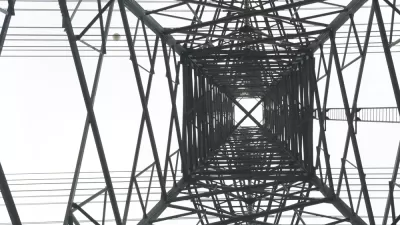An avalanche decimates an Alaskan city's energy infrastructure, leading residents to craft creative ways to conserve energy and lower their utility bills.
"On April 16, all lines connecting Juneau to the Snettisham hydroelectric power plant were destroyed, leaving the city with two options: lose a lot of green or go green.
In efforts to lower costs and prevent future global-warming triggered disasters, Juneau residents went far beyond turning off running water while brushing their teeth.
At the Willis household, the energy-saving list grew to be quite long. Electricity conserving tasks included: unplugging the microwave after use (because of the digital clock), no baking, eating cold cereal instead of hot, unplugging the TV and its cable box nightly, replacing bulbs with compact fluorescent ones, turning off lights and power strips, and not using the electric garage door opener.
With one of the biggest energy-consuming appliances being the hot water heater, residents began washing their clothes in cold water and hanging them to dry outside.
Because of the quick turnaround in fixing the electricity lines, the highest diesel rate will only be in effect for one month. And what about those who can't afford it? The city government stepped in and allocated $3 million in funds to assist low-income households, needy businesses, and non-for-profits pay their bills."
Thanks to Larry Schooler
FULL STORY: Greening A White City

Planetizen Federal Action Tracker
A weekly monitor of how Trump’s orders and actions are impacting planners and planning in America.

Maui's Vacation Rental Debate Turns Ugly
Verbal attacks, misinformation campaigns and fistfights plague a high-stakes debate to convert thousands of vacation rentals into long-term housing.

Restaurant Patios Were a Pandemic Win — Why Were They so Hard to Keep?
Social distancing requirements and changes in travel patterns prompted cities to pilot new uses for street and sidewalk space. Then it got complicated.

In California Battle of Housing vs. Environment, Housing Just Won
A new state law significantly limits the power of CEQA, an environmental review law that served as a powerful tool for blocking new development.

Boulder Eliminates Parking Minimums Citywide
Officials estimate the cost of building a single underground parking space at up to $100,000.

Orange County, Florida Adopts Largest US “Sprawl Repair” Code
The ‘Orange Code’ seeks to rectify decades of sprawl-inducing, car-oriented development.
Urban Design for Planners 1: Software Tools
This six-course series explores essential urban design concepts using open source software and equips planners with the tools they need to participate fully in the urban design process.
Planning for Universal Design
Learn the tools for implementing Universal Design in planning regulations.
Heyer Gruel & Associates PA
JM Goldson LLC
Custer County Colorado
City of Camden Redevelopment Agency
City of Astoria
Transportation Research & Education Center (TREC) at Portland State University
Jefferson Parish Government
Camden Redevelopment Agency
City of Claremont




























